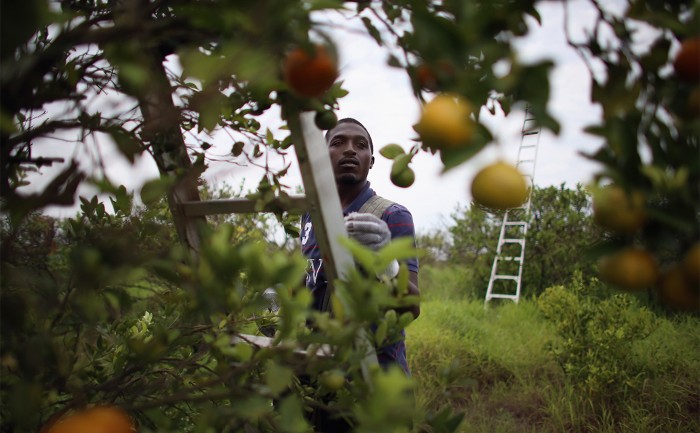On the Branches of a Dilemma
"Florida makes the unsubstantiated claim that cycling between the two antibiotics streptomycin and oxytetracycline will ‘minimize any selection pressure’ and therefore can be considered a ‘an effective resistance management program’ that will not only reduce resistance in the target organism but ‘should also help in preventing development of resistance in nontarget bacteria as well'."
"The use of cycling of antibiotics as proposed here for the management of resistance is highly controversial even in human medicine and there is no clear evidence that it can be considered ‘an effective resistance management program'."
Keep Antibiotics Working advocacy group
"Researchers have been telling us for decades to curb the use of antibiotics in agriculture or risk losing them forever."
"The Trump administration has chosen to ignore the science and blindly sprint down a path that could dead-end at bacterial resistance."
"Our issue is that these drugs are a really lousy answer to a complex problem, and the potential for risk outweighs the benefits. "
"This is just another example of the pesticide office of the EPA approving a pesticide that’s not been studied well enough for the agency to make a competent decision on its safety. This happens a lot, where the pesticide office approves a pesticide without studies, then 10 to 15 years later we find out it has unintended consequences to human health or to environmental health and at that point it is often too late and the damage has been done."
Nathan Donley, senior scientist, Center for Biological Diversity
 |
| Citrus greening has been threatening Florida’s multimillion-dollar industry for more than a decade. Credit: Joe Raedle/Getty |
Scientists have been warning the world for decades of the dangers inherent in carelessly using antibacterials for such casual purposes as hand-washing soaps. Even more so, the use of antibiotics on domesticated animals whose end-purpose is slaughter for consumption by human populations, has brought into focus the fact that their bacterial targets, through too-frequent encounters with the antibiotics, have undergone swift genetic alterations rendering them immune to the antibiotics. The end result of that is the emergence of super-bacteria strains impervious to antibiotics.

Florida's citrus industry has been hard hit by the Asian infiltration, destroying citrus crops. The state traditionally supplies a juice industry alone, to the value of $7.2 billion in which 50,000 people are employed. Scores of growers have been forced out of business as a result of the damage being wrought on their fruit-bearing orchards. Those that remain to fight out the scourge use industrial sprayers to douse their trees with an unusual 'pesticide': antibiotics normally used in the treatment of syphilis, tuberculosis and associated illnesses in humans.
Florida citrus farmers have been permitted to use the drugs streptomycin and oxytetracycline on an emergency basis, since 2016 by the United States Environmental Protection Agency. Now, however, the agency has expanded permitted use of the antibiotics across 310,000 hectares in California, in Texas and in other citrus-producing states. The expansion was given approval in spite of objections coming from two other government agencies, warning the use of antimicrobial drugs in agriculture could spur germs to mutate. Should they become drug-resistance, millions of lives would be threatened.
Americans make use on an annual basis of 6,350 kilograms of aminoglyosides representing the class of antibiotics including streptomycin. In comparison, the E.P.A.'s proposal is for up to 295,000 kilograms of streptomycin be sprayed annually on citrus crops. Streptomycin and oxytetracycline have both been banned for agricultural use by the European Union, and so too by Brazil, where the same scourge, called huanglongbing or citrus greening disease, has attacked orange groves there.
 |
So the debate and the warning of the use of antimicrobials endangering human health, though focused on livestock farmers' use of antibiotics, has now been extended to incorporate the 'pesticide' spray of those same types of drugs on vegetation to rid it of a pernicious disease. At the very time that researchers are convinced that the increased appearance of a drug-resistant lung infection called aspergillosis is directly related to the increased use of agricultural fungicides.
Drug-resistant infections could claim ten million lives globally by 2050, according to the United Nations.
The concern that drugs will cause pathogenic bacteria in soil to become resistant to compounds finding their way to people, troubles scientists, as well as that these bacteria will share their drug-resistant qualities with other germs, spreading the condition which transforms them into human-threatening germs impervious to other strains of antibiotics.
The E.P.A., relying largely on data provided by pesticide producers, claims that streptomycin quickly dissipates in the environment, while qualifying that by noting a "medium" risk from extending the use of such drugs to citrus crops, exists. Seeking to address government agencies' concerns, the E.P.A. has ordered additional monitoring, and limiting approvals to seven years.
 |
| Photo: Julie Hausman |
Labels: Agricultural disease, Antibiotics, China, Pesticide, Species Invasion, United States

0 Comments:
Post a Comment
<< Home